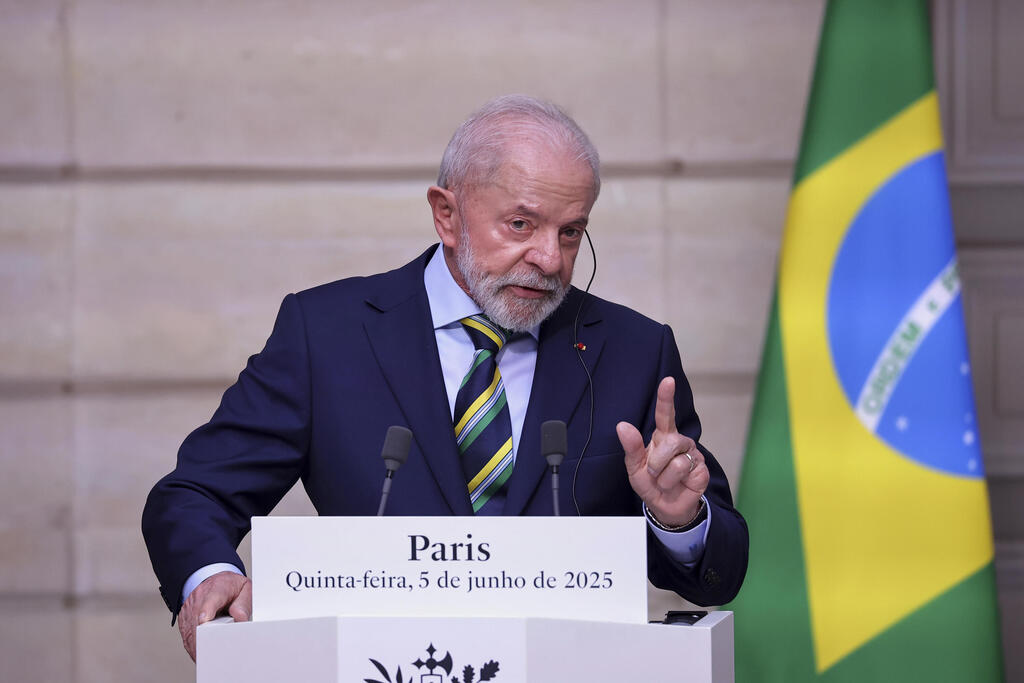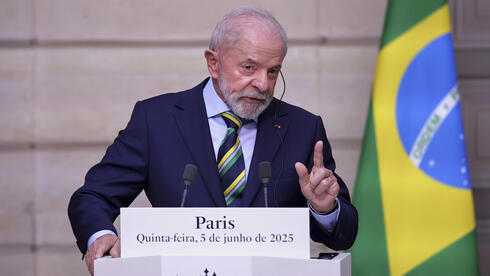Andre Lajst, executive president of StandWithUs Brazil
(צילום: ליאור שרון)
Antisemitism surges 1,000%
The diplomatic rift has coincided with an alarming rise in antisemitic incidents targeting Brazil’s Jewish community, the world’s ninth-largest with about 100,000 members. Lajst said antisemitic attacks and reports have increased by 1,000% since October 7.
Political polarization deepens crisis
Lajst stressed that Israel has become entangled in Brazil’s intense political polarization between supporters of Lula and former President Jair Bolsonaro.
“Brazil is very polarized in politics. I think the whole world is polarized but Brazil especially,” he said. “Israel needs to withdraw from these kinds of discussions… Israel needs to be received and perceived as a democracy in Brazil by the left and the right.”
Historical ties under strain
Despite the current tensions, Lajst highlighted Brazil’s historically crucial role in Israel’s creation. Brazilian diplomat Oswaldo Aranha, as president of the UN General Assembly in 1947, played a key role in advancing the partition plan that paved the way for Israel’s establishment.
“Brazil had crucial importance for the creation of Israel,” Lajst noted, pointing to generally positive relations since Brazil’s democratization after military rule.
1 View gallery


Brazilian President Luiz Inácio Lula da Silva
(Photo: Christophe Petit Tesson/Pool via Reuters)
The relationship has also supported strong economic ties, with 200–300 Israeli companies operating in Brazil and between 10,000–12,000 Brazilian Jews having made aliyah to Israel.
Jewish community considers exodus
The deteriorating security situation has prompted some in Brazil’s Jewish community to consider emigration. However, Lajst noted that the war in Israel has temporarily reduced aliyah numbers due to security concerns there.
“As we see the situation in Brazil becoming more anti-Israeli and antisemitic, we have a growing number of aliyah in Brazil,” he said. “Of course there are more people that don’t feel safe.”
Looking ahead
Lajst expressed cautious optimism about the future, pointing to upcoming elections as a possible turning point.
“Next year, there will be elections in Brazil. Maybe this government will no longer be and a new government will arise and the relationship will be restored,” he said. “I have no doubt that the relationship will be restored.”
Still, he warned that the present diplomatic isolation marks an unprecedented low: “The relationship is at the lowest level… downgraded since, you know, the last 30 years.”






